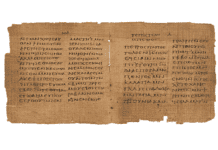Thurmond ran against Truman for president and lost, but continued fighting integration. When John F. Kennedy, a Democrat, publicly supported the civil rights movement, and Lyndon B. Johnson, also a Democrat, signed the Civil Rights Act, Southern Democrats like Thurmond began switching to the Republican party.
“Over the next few years, segregationist Democrats like Thurmond jumped to the Republican party in droves,” said Vischer, “and the South began shifting from blue to red. The identity of the Democratic party as progressive was settling in, and a new wave of conservative Republicans was about to shift the brand there as well.”
This shift can be seen in the careers of Barry Goldwater, a Republican who opposed the civil rights bill; Richard Nixon, who became president by appealing to white voters in the South; and Ronald Reagan, who appealed to states rights and happened to launch his presidential campaign in a Mississippi county where three civil rights workers were murdered.
“Between 1968 and 1988,” said Vischer, “the Republican Party had become the party of white, Christian, conservative America, and the Democratic party was now the party of radical, progressive leftists and hippies. Oh! And black church ladies.”
To understand this development more clearly, Vischer asked viewers to consider the meaning of the terms “progressive” and “conservative.” The word “progressive” means we are improving and moving forward while “conservative” denotes the idea that we are holding on to our values instead of losing them. Said Vischer, “The best way to explain why white Christians vote for conservative candidates and Black Christians vote for progressive candidates may simply be this: what do we see when we look in the rearview mirror?”
When white Christians think of the past, they think of a time where abortion was illegal, gender roles were clearer, there was prayer in schools, and most Americans went to church. Black Christians, said Vischer, see something “very different”: fire hoses, lynchings, and church bombings. They also see politicians like Strom Thurmond fighting integration and white Christians supporting him to the point of keeping him in the Senate for five decades until he died in office at age 100.
“When white Christians look at the Supreme Court,” said Vischer, “they see the reason abortion is legal in school and prayer isn’t. But when Black Christians look at the Supreme Court, they see the reason they can vote and pursue housing and employment without blatant discrimination. That difference in perspective has a huge impact on whether you see the federal government as part of the problem or part of the solution. Having the right to hear a Christian prayer in your local public school doesn’t mean much if you’re not allowed to attend your local public school.”
It is unfortunate, said Vischer, that we only have two major political parties and that these parties generally force us to choose between progress and maintaining our values. The Bible actually calls us to both, he said, and “neither party lines up with that very well. But I hope at least now you understand how Christians from different backgrounds can read the same Bible, pray to the same God, and come to very different conclusions about who is going to get their vote.”











